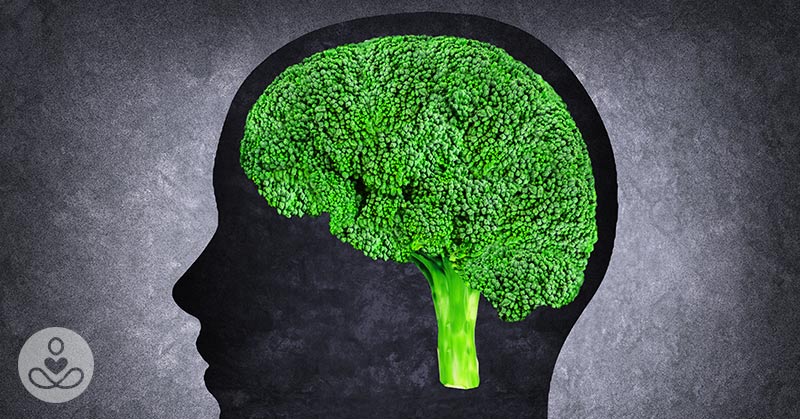Your brain is kind of a big deal. As the control center of your body, it’s in charge of keeping your heart beating and lungs breathing and allowing you to move, feel, and think. That’s why it’s a good idea to keep your brain in peak working condition. The foods you eat play a role in keeping your brain healthy and can improve specific mental tasks, such as memory and concentration. This article lists 11 foods that boost your brain.
1. Fatty Fish

When people talk about brain foods, fatty fish is often at the top of the list. This type of fish includes salmon, trout, and sardines, which are all rich sources of omega-3 fatty acids (1). About 60% of your brain is made of fat, and half of that fat is the omega-3 kind (2). Your brain uses omega-3s to build brain and nerve cells, and these fats are essential for learning and memory (3). Omega 3-s also have a couple of additional benefits for your brain. For one thing, they may slow age-related mental decline and help ward off Alzheimer’s disease (4, 5, 6, 7).
On the flip side, not getting enough omega-3s is linked to learning impairments, as well as depression (8). In general, eating fish seems to have positive health benefits. One study found that people who ate baked or broiled fish regularly had more gray matter in their brains. Gray matter contains most of the nerve cells that control decision-making, memory, and emotion (9). Overall, fatty fish is an excellent choice for brain health.
SUMMARY: Fatty fish is a rich source of omega-3s, a major building block of the brain. Omega-3s play a role in sharpening memory and improving mood, as well as protecting your brain against decline.
Read More: Diets Low in This Antioxidant May Contribute to Memory Decline
2. Coffee

If coffee is the highlight of your morning, you’ll be glad to hear that it’s good for you. Two main components in coffee — caffeine, and antioxidants — help your brain. The caffeine in coffee has a number of positive effects on the brain, including:
- Increased alertness: Caffeine keeps your brain alert by blocking adenosine, a chemical messenger that makes you sleepy (10, 11, 12).
- Improved mood: Caffeine may also boost some of your “feel-good” neurotransmitters, such as serotonin (13).
- Sharpened concentration: One study found that when participants drank one large coffee in the morning or smaller amounts throughout the day, they were more effective at tasks that required concentration (14).
Drinking coffee over the long term is also linked to a reduced risk of neurological diseases, such as Parkinson’s and Alzheimer’s (9). This could at least be partly due to coffee’s high concentration of antioxidants (15).
SUMMARY: Coffee can help boost alertness and mood. It may also offer some protection against Alzheimer’s, thanks to its caffeine and antioxidants.
3. Blueberries
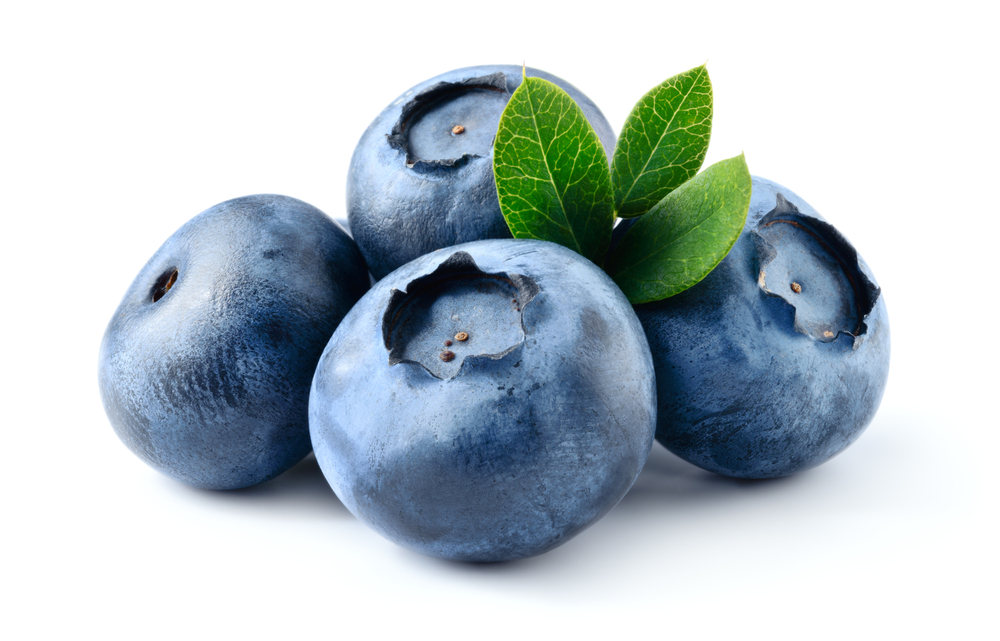
Blueberries provide numerous health benefits, including some that are specifically for your brain. Blueberries and other deeply colored berries deliver anthocyanins, a group of plant compounds with anti-inflammatory and antioxidant effects (16). Antioxidants act against both oxidative stress and inflammation, conditions that may contribute to brain aging and neurodegenerative diseases (16).
Some of the antioxidants in blueberries have been found to accumulate in the brain and help improve communication between brain cells (16, 17). Animal studies have shown that blueberries help improve memory and may even delay short-term memory loss (18, 19, 20). Try sprinkling them on your breakfast cereal or adding them to a smoothie.
SUMMARY: Blueberries are packed with antioxidants that may delay brain aging and improve memory.
4. Turmeric
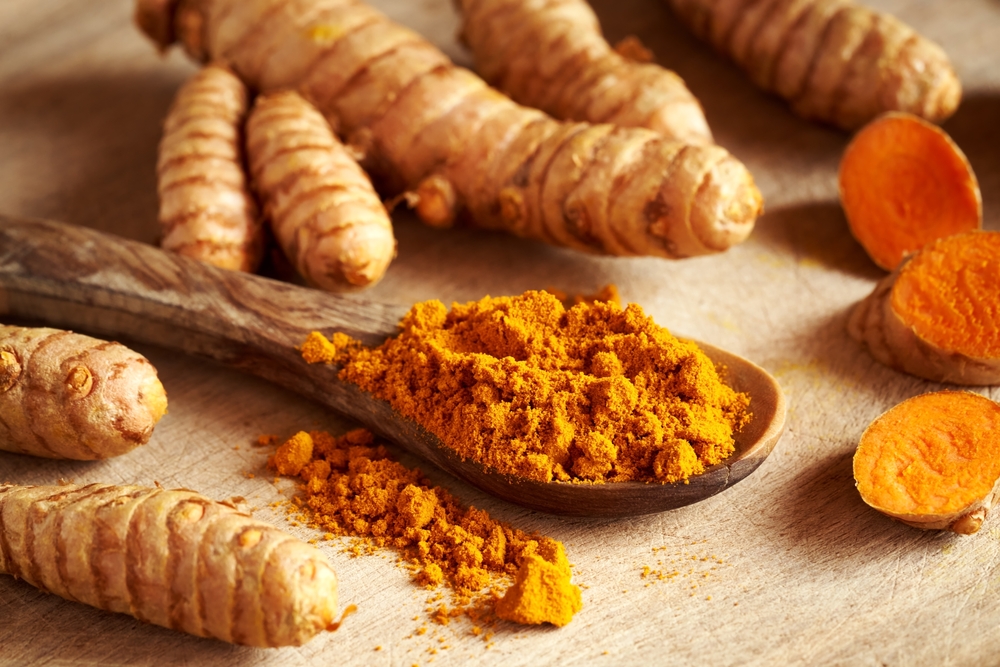
Turmeric has generated a lot of buzz recently. This deep-yellow spice is a key ingredient in curry powder and has a number of benefits for the brain. Curcumin, the active ingredient in turmeric, has been shown to cross the blood-brain barrier, meaning it can directly enter the brain and benefit the cells there (21).
It’s a potent antioxidant and anti-inflammatory compound that has been linked to the following brain benefits:
- May benefit memory: Curcumin may help improve memory in people with Alzheimer’s. It may also help clear the amyloid plaques that are a hallmark of this disease (22).
- Eases depression: It boosts serotonin and dopamine, which both improve mood. One study found curcumin improved depression symptoms just as much as an antidepressant over six weeks (23, 24).
- Helps new brain cells grow: Curcumin boosts brain-derived neurotrophic factor, a type of growth hormone that helps brain cells grow. It may help delay age-related mental decline, but more research is needed (25).
To reap the benefits of curcumin, try cooking with curry powder, adding turmeric to potato dishes to turn them golden, or making turmeric tea.
SUMMARY: Turmeric and its active compound curcumin have strong anti-inflammatory and antioxidant benefits, which help the brain. In research, it has reduced symptoms of depression and Alzheimer’s disease.
5. Broccoli
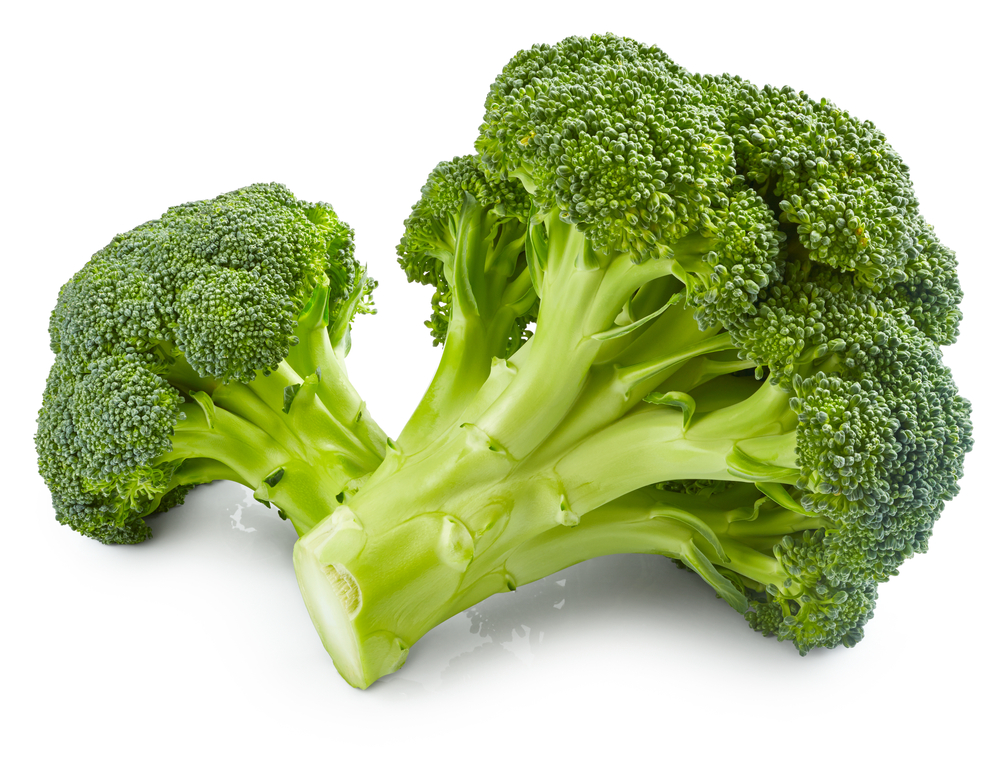
Broccoli is packed with powerful plant compounds, including antioxidants (26). It’s also very high in vitamin K, delivering more than 100% of the Recommended Daily Intake (RDI) in a 1-cup (91-gram) serving (27). This fat-soluble vitamin is essential for forming sphingolipids, a type of fat that’s densely packed into brain cells (28). A few studies in older adults have linked a higher vitamin K intake to better memory (29, 30). Beyond vitamin K, broccoli contains a number of compounds that give it anti-inflammatory and antioxidant effects, which may help protect the brain against damage (31).
SUMMARY: Broccoli contains a number of compounds that have powerful antioxidant and anti-inflammatory effects, including vitamin K.
6. Pumpkin Seeds
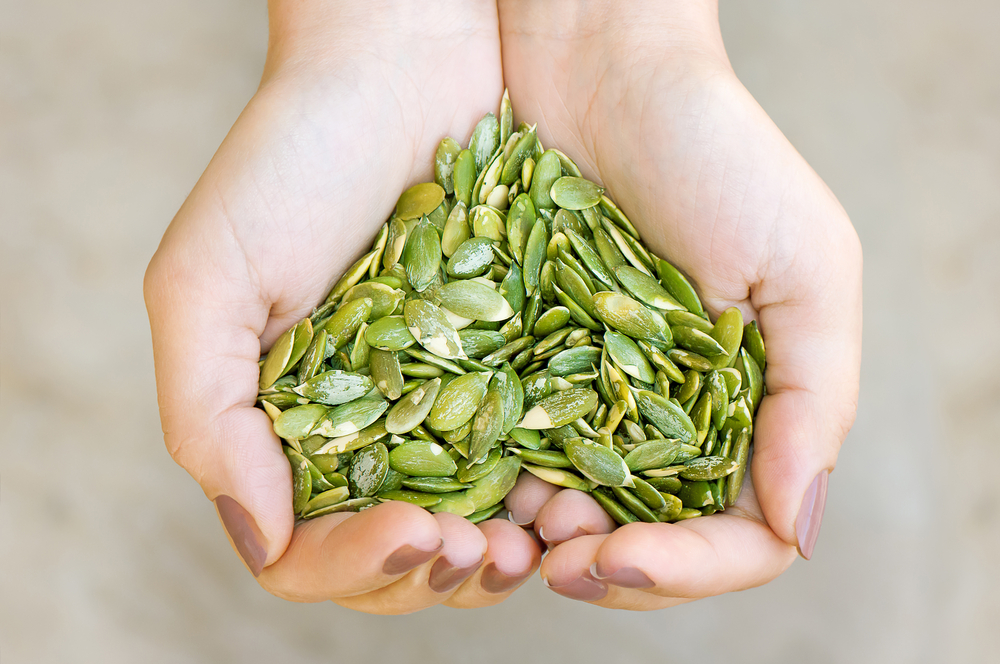
Pumpkin seeds contain powerful antioxidants that protect the body and brain from free radical damage. They’re also an excellent source of magnesium, iron, zinc, and copper (32).
Each of these nutrients is important for brain health:
- Zinc: This element is crucial for nerve signaling. Zinc deficiency has been linked to many neurological conditions, including Alzheimer’s disease, depression, and Parkinson’s disease (33, 34, 35).
- Magnesium: Magnesium is essential for learning and memory. Low magnesium levels are linked to many neurological diseases, including migraines, depression, and epilepsy (36, 37).
- Copper: Your brain uses copper to help control nerve signals. And when copper levels are out of whack, there’s a higher risk of neurodegenerative disorders, such as Alzheimer’s (38, 39).
- Iron: Iron deficiency is often characterized by brain fog and impaired brain function (40).
The research focuses mostly on these micronutrients, rather than pumpkin seeds themselves. However, since pumpkin seeds are high in these micronutrients, you can likely reap their benefits by adding pumpkin seeds to your diet.
SUMMARY: Pumpkin seeds are rich in many micronutrients that are important for brain function, including copper, iron, magnesium, and zinc.
Read More: Memory Loss from Alzheimer’s Reversed by Head Device Using Electromagnetic Waves
7. Dark Chocolate

Dark chocolate and cocoa powder are packed with a few brain-boosting compounds, including flavonoids, caffeine, and antioxidants. Flavonoids are a group of antioxidant plant compounds. The flavonoids in chocolate gather in the areas of the brain that deal with learning and memory. Researchers say these compounds may enhance memory and also help slow down age-related mental decline (41, 42, 43, 44). In fact, a number of studies back this up (45, 46, 47).
In one study including over 900 people, those who ate chocolate more frequently performed better in a series of mental tasks, including some involving memory, than those who rarely ate it. Chocolate is also a legitimate mood booster, according to research. One study found that participants who ate chocolate experienced increased positive feelings, compared to participants who ate crackers (48). However, it’s still not clear whether that’s because of compounds in the chocolate, or simply because the yummy flavor makes people happy.
SUMMARY: The flavonoids in chocolate may help protect the brain. Studies have suggested that eating chocolate could boost both memory and mood.
8. Nuts
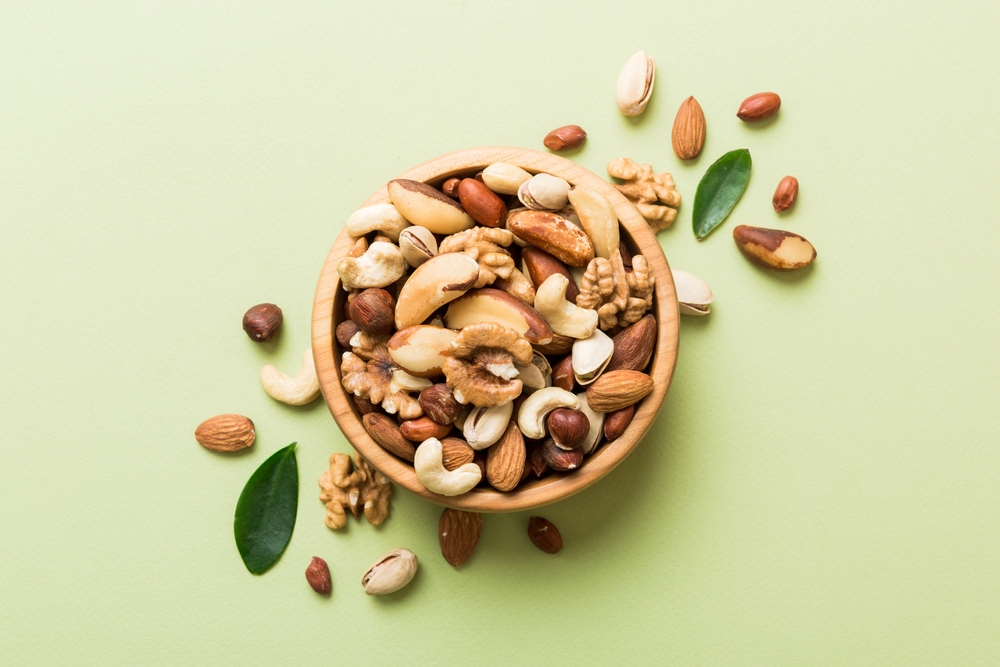
Research has shown that eating nuts can improve markers of heart health, and having a healthy heart is linked to having a healthy brain (49, 50). A 2014 review showed that nuts can improve cognition and even help prevent neurodegenerative diseases (51). Also, another large study found that women who ate nuts regularly over the course of several years had a sharper memory, compared to those who didn’t eat nuts.
Several nutrients in nuts, such as healthy fats, antioxidants, and vitamin E, may explain their brain-health benefits (52, 53). Vitamin E shields cell membranes from free radical damage, helping slow mental decline (54, 55, 56). While all nuts are good for your brain, walnuts may have an extra edge, since they also deliver omega-3 fatty acids (57).
SUMMARY: Nuts contain a host of brain-boosting nutrients, including vitamin E, healthy fats, and plant compounds.
9. Oranges

You can get all the vitamin C you need in a day by eating one medium orange (58). Doing so is important for brain health since vitamin C is a key factor in preventing mental decline (59). Eating sufficient amounts of vitamin C-rich foods can protect against age-related mental decline and Alzheimer’s disease, according to a 2014 review article (60).
Vitamin C is a powerful antioxidant that helps fight off the free radicals that can damage brain cells. Plus, vitamin C supports brain health as you age (61). You can also get excellent amounts of vitamin C from bell peppers, guava, kiwi, tomatoes, and strawberries (62).
SUMMARY: Oranges and other foods that are high in vitamin C can help defend your brain against damage from free radicals.
10. Eggs

Eggs are a good source of several nutrients tied to brain health, including vitamins B6 and B12, folate, and choline (63). Choline is an important micronutrient that your body uses to create acetylcholine, a neurotransmitter that helps regulate mood and memory (64, 65). Two studies found that higher intakes of choline were linked to better memory and mental function (66, 67). Nevertheless, many people don’t get enough choline in their diet.
Eating eggs is an easy way to get choline, given that egg yolks are among the most concentrated sources of this nutrient. Adequate intake of choline is 425 mg per day for most women and 550 mg per day for men, with just a single egg yolk containing 112 mg. Furthermore, the B vitamins have several roles in brain health. To start, they may help slow the progression of mental decline in the elderly (68). Also, being deficient in two types of B vitamins — folate and B12 — has been linked to depression (69).
Folate deficiency is common in elderly people with dementia, and studies show that folic acid supplements can help minimize age-related mental decline (70, 71). B12 is also involved in synthesizing brain chemicals and regulating sugar levels in the brain. It’s worth noting that there’s very little direct research on the link between eating eggs and brain health. However, there is research to support the brain-boosting benefits of the nutrients found in eggs.
SUMMARY: Eggs are a rich source of several B vitamins and choline, which are important for proper brain functioning and development, as well as regulating mood.
11. Green Tea

As is the case with coffee, the caffeine in green tea boosts brain function. In fact, it has been found to improve alertness, performance, memory, and focus (72). But green tea also has other components that make it a brain-healthy beverage. One of them is L-theanine, an amino acid that can cross the blood-brain barrier and increase the activity of the neurotransmitter GABA, which helps reduce anxiety and makes you feel more relaxed (73, 74, 75).
L-theanine also increases the frequency of alpha waves in the brain, which helps you relax without making you feel tired (76). One review found that the L-theanine in green tea can help you relax by counteracting the stimulating effects of caffeine. It’s also rich in polyphenols and antioxidants that may protect the brain from mental decline and reduce the risk of Alzheimer’s and Parkinson’s (77, 78). Plus, green tea has been found to improve memory (79).
SUMMARY: Green tea is an excellent beverage to support your brain. Its caffeine content boosts alertness, while its antioxidants protect the brain and L-theanine helps you relax.
The Bottom Line
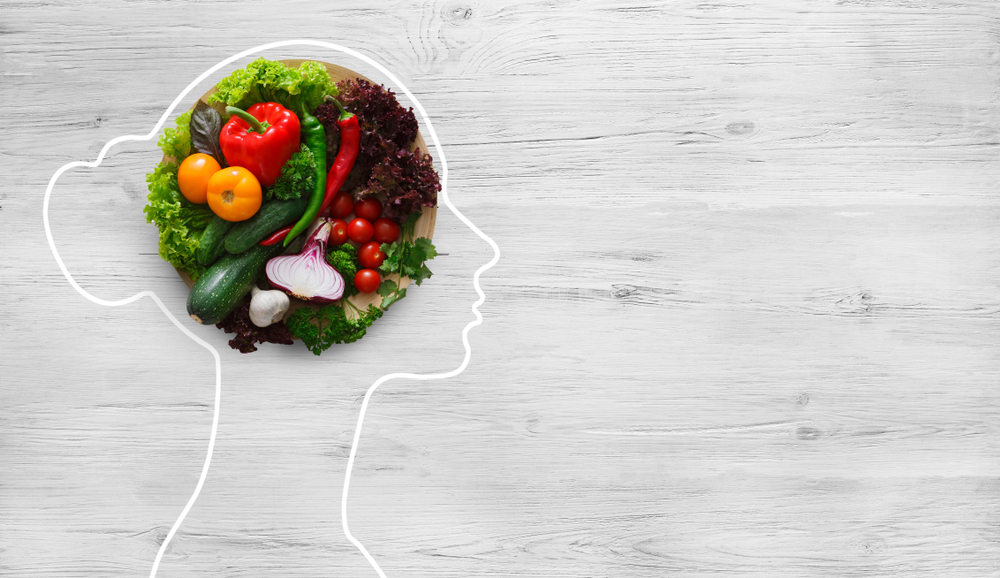
Many foods can help keep your brain healthy. Some foods, such as the fruits and vegetables in this list, as well as tea and coffee, have antioxidants that help protect your brain from damage. Others, such as nuts and eggs, contain nutrients that support memory and brain development. You can help support your brain health and boost your alertness, memory, and mood by strategically including these foods in your diet.
Read More: 8 Dead Simple, Science-Backed Ways To Improve Memory and Rid Brain Fog
